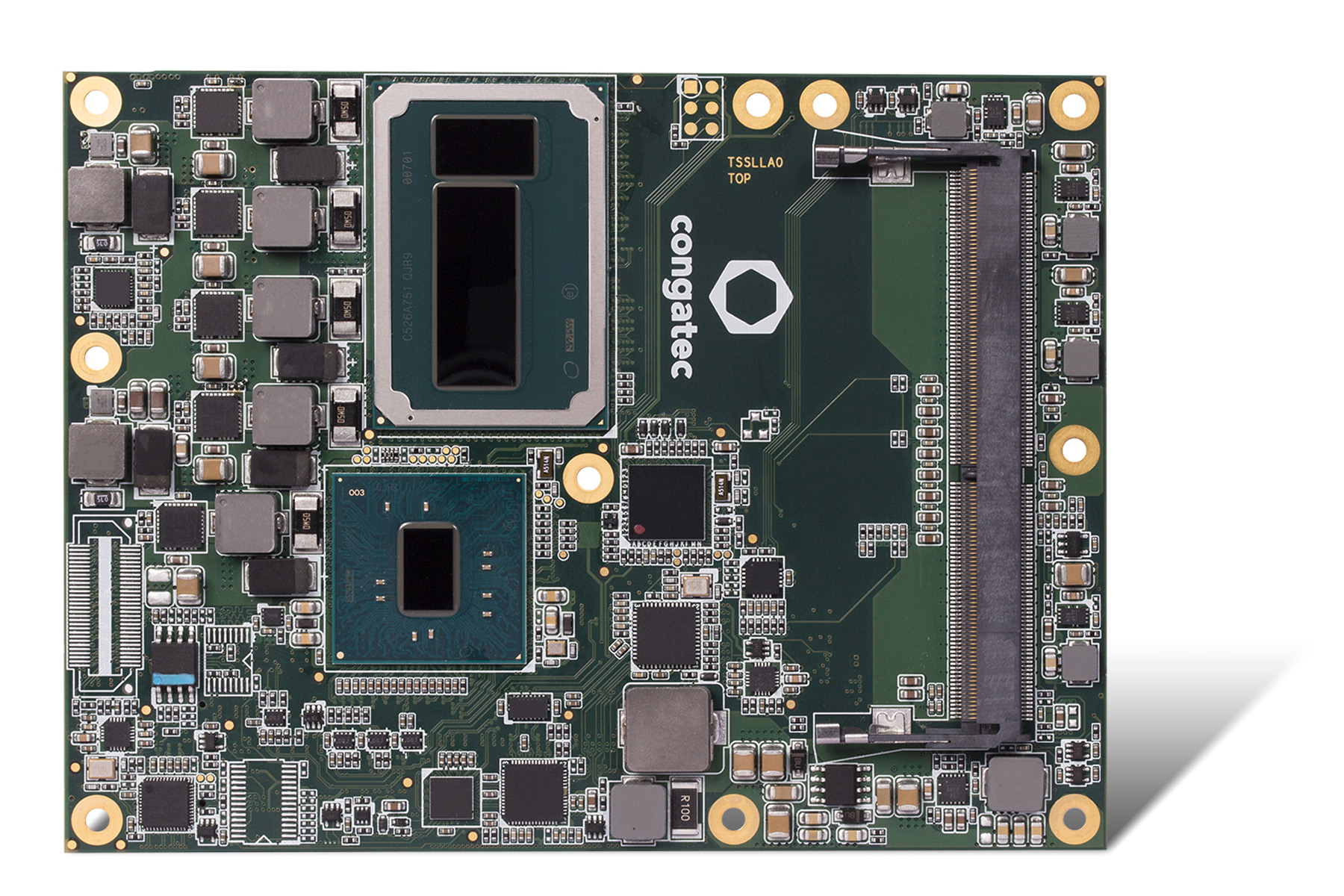congatec speeds up its COM Express Basic module portfolio with new Intel Xeon and Gen 7 Intel Core processors

congatec, technology company for embedded computer modules, single board computers and embedded design and manufacturing services, has extended its COM Express Basic portfolio with the new high-performance conga-TS175 Computer-on-Module.
Equipped with the high-end dual chip versions of the new Intel Xeon and Gen 7 Intel Core processors (codename Kaby Lake), it sets a new benchmark for module-based high-end embedded computers and modular industrial workstations that need to process massive workloads.
Application areas for these high-end COM Express Type 6 Server-on-Modules can be found everywhere where data intensive streams need to be processed and displayed in real time.
Target markets include big data processing embedded clouds, edge and fog servers, medical imaging systems, video surveillance and vision-based quality control, simulation equipment, host systems for virtualised control technology, vision systems in industrial control rooms and other plant-wide supervision systems or high-end professional gaming and digital signage.
Compared to their predecessors (codename Skylake), the new modules host increased CPU frequencies and performance, more dynamic HDR graphics thanks to 10-bit video codecs, and support super-fast 3D XPoint-based Intel Optane memory.
In comparison to the single chip variants of the new Gen 7 Intel Core processors, the dual chip versions set the latest state-of-the-art benchmark for high-end Server-on-Module applications and high-end embedded use cases with hyper threading within the embedded power envelope of up to 45 Watts.

conga-TS175
“The new modules will significantly change the way we leverage massive data streams because they support the new Intel Optane memory which is based on 3D XPoint technology. It offers a significantly lower latency while handling the same size of data packets compared to NAND SSDs, and compared to standard HDDs, its latency of just 10 µs is even a thousand times lower.
As a consequence, the responsiveness of applications such as Big Data processing, High-Performance Computing, virtualisation, data storage, clouds and computer games can be massively improved by utilising Computer-on-Modules that support this very fast, cost effective and non-volatile memory,” explained Martin Danzer, director Product Management at congatec.
Comment on this article below or via Twitter @IoTGN
